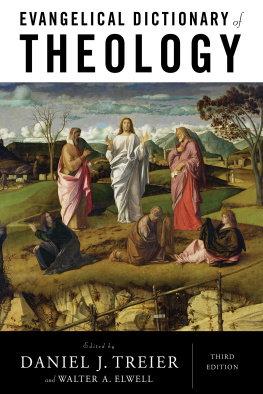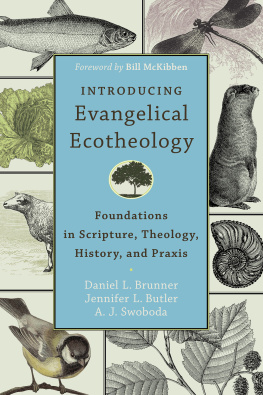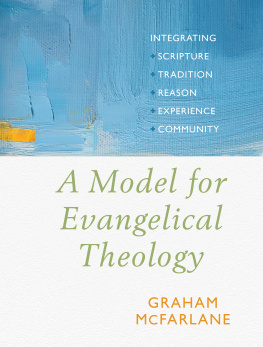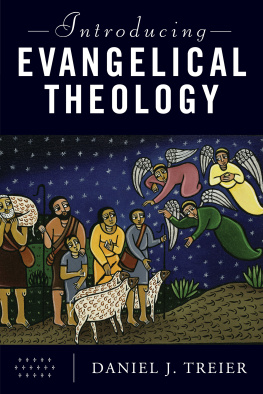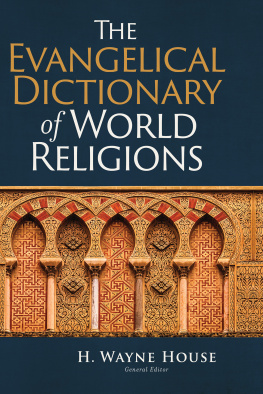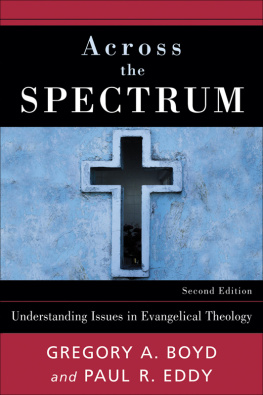Preface
T here are many different reasons for an author to write a book. Sometimes they may want to report a body of information to their audience. Other authors may believe they have answers that their audience should think about. Still others write in hopes that their audience may seriously respond to the written materials, not by embracing what is said, but by raising their own questions and seeking answers. This project is not written because I believe I have the right answers or the best answers; I know better. Rather, it is hoped that this project challenges a group of individuals to ask questions and seek better answers than I have offered. Within the Christian religion, we find a fascinating story of Paul and Silas visiting Beroea. We are told these Jews were more noble than those in Thessalonica, for they received the word [from Paul and Silas] with all eagerness, examining the scriptures daily to see if these things were so (Acts :). The Beroeans immediate response was not to reject the message because it was something new to them, nor did they simply embrace the message. Rather the Beroeans were open to the message and then examined the scripturestesting the message of Paul and Silas. Because of their response to the new message, the Beroeans are called noble. I do not ask my readers to accept my interpretations of the various world religions, or my evaluations of the various philosophical positions discussed in the following pages, or my proposals for the development of an evangelical theology of religions. Rather I hope my readers will respond by asking their own questions, making their own critical study in a way such that they too will be called noble. This involves philosophically thinking about the world religions and the theology of religions.
While some philosophers may see their written work as an attempt to advocate a particular approach, this writer sees philosophy as a tentative work. The job is never complete: there is always more to do, and any one individual will not do it. Philosophical inquiries should stimulate discussion and dialogue. This writer does write from a particular philosophical/theological stance. Philosophically I am influenced by analytical philosophy, especially the work of P. F. Strawson, who emphasized looking for connections. The pragmatic philosophy of Charles Peirce drives me to make sure I am not engaged in discussions regarding the number of angels that can dance on the head of a pin. Religiously, I am committed to the Christian tradition, and theologically to a form of evangelical thought. Do these positions influence my work? Of course! But hopefully not to the point that I am intellectually unfair with positions contrary to these positions. This project is offered not with the idea of having the final answers, but rather with the hope that it will stimulate discussion and dialogue, both among those who share common interests with me and with those who have different positions than I. The study of world religions is an exciting enterprise, especially if we understand it as an ongoing engagement with the world and those that make up the world.
Finally, this project is seen as foundational for a study and development of a theology of religions. The theology of religions, roughly, is concerned with how members of one religious tradition view members of another tradition. Today we live in a secular global society. Only after we have seriously considered the world religions can we hope to make progress with one of the most exciting new fields of theology. In the second volume of this project, we explore how evangelical Christians can affirm the particularities of their theological perspective and develop a positive approach that promotes dialogue and interaction with members of other faith traditions. For those readers who do not share my religious beliefs, this volume should provide an example for you to work on a theology of religions for your tradition. However, it should be noted that many readers might prefer to start with the second volume and then work through the first. This project is not presented as a linear work, but one looking for connections and desiring to promote dialogue.
Acknowledgments
A ny project like this comes to fruition because of the work of many individuals and because of many opportunities. It is impossible to name all; however, some individuals or groups of individuals must be acknowledged. For the past twenty years I have had the wonderful opportunity to teach philosophy and world religions at Fresno City College. The demographics of Fresno, California, reflect the diversity of religious traditions found in our secular global society today. For many years I had the opportunity to work with members of various religious traditions, as I was involved in the Fresno Multifaith Exchange. They taught me much. This required me to think through some of my presuppositions regarding other religious traditions while maintaining my evangelical stance. Several of these essays were initiated as I wrote my dissertation for the University of Wales, Lampeter. I had the fortunate opportunity to have Dr. Alan Race as my supervisor. Although theologically we were very different, it was a great experience from which I benefited much. I wish to also thank Dr. K. C. Hanson, my editor at Cascade Books (an imprint of Wipf and Stock Publishers), and his staff for their support and direction. Finally, I must thank my wife, Kathy, for her patience and support as I have worked on this project. Not only has she read every essay and commented, but also she was a great traveling partner as we visited religious sites in the UK, India, Russia, and China. She continues to be a great travelling partner through life. Thank you! In spite of all the great advice I have received over the years, I am solely responsible for the content of this project, since I have not always heeded that advice.
Approaching the Worlds Religions
Volume 2
An Evangelical Theology of Religions
Robert Boyd
Introduction to Volume 2
E vangelical theology strives to be evangelical, conservative, and contemporary. In a world in which everyone is Christian, evangelical theology provides a balanced position between fundamentalism and liberalism. While theological debates within the family will occur, to be evangelical is a breath of fresh air for many. However, we do not live in such a world. We do find ourselves living in a secular global society. It is secular because no religious organization dictates how we live our lives. It is global for at least two reasons. First, our technology brings us immediately in contact with faraway places. Second, and of more importance, we can simply step outside our front doors and visit neighborhoods that reflect a global pluralism. This raises the question, how shall we then live?
For some this secular global society is a call for retreat and sequestering in their own little encampment. This response may allow one to be conservative, but it is not evangelical, nor is it contemporary. The purpose of this project, Approaching the Worlds Religions , is to challenge us to think about and become educated regarding a global society that is religious and secular. In the first volume, Philosophically Thinking about World Religions , my intent was to challenge some of the presuppositions we find regarding the worlds religions. On the one hand, we discover that the great religious traditions do not all say the same thing. On the other hand, there are many common denominators among the traditions. These common denominators can give us common ground to work on as we then examine our differences. Furthermore, the variants within a given tradition can be great; hence, to pigeonhole a particular member of a tradition may result in a stereotype. The intent of this volume, An Evangelical Theology of Religions , is to suggest a direction for evangelicals to think about the secular global society in which they live in a way that is not only conservative but also evangelical and contemporary.


